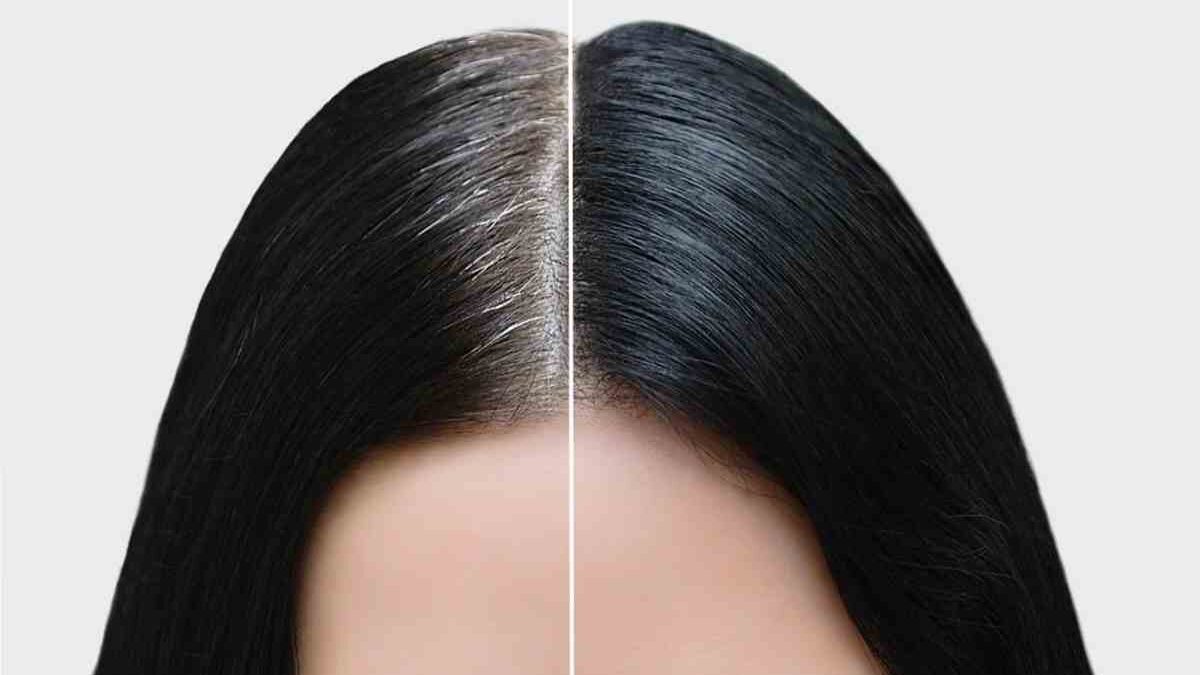Wellhealthorganic.com How to Prevent White Hair Naturally
White hair is a natural part of aging, but premature graying can be concerning. This comprehensive guide explores natural methods to prevent and manage white hair, backed by traditional wisdom and scientific research.
Table of Contents
Understanding White Hair Formation
The Science Behind Hair Pigmentation
Hair gets its color from melanin, a pigment produced by specialized cells called melanocytes. As we age or due to various factors, melanin production can decrease, leading to white or gray hair.
Common Causes of Premature White Hair
– Genetic factors
– Nutritional deficiencies
– Chronic stress
– Environmental pollutants
– Certain medical conditions
– Hormonal imbalances
Natural Prevention Methods
Dietary Modifications
Essential Nutrients
Incorporating these nutrients into your diet can help maintain natural hair color:
– Vitamin B12: Found in eggs, dairy, and fish
– Iron: Present in leafy greens, lentils, and red meat
– Copper: Available in nuts, seeds, and whole grains
– Zinc: Found in pumpkin seeds, chickpeas, and oysters
Antioxidant-Rich Foods
Regular consumption of these foods can protect melanin-producing cells:
– Dark berries
– Green tea
– Dark chocolate
– Leafy vegetables
– Citrus fruits
Herbal Remedies
Traditional Applications
Several herbs have been traditionally used to prevent white hair:
– Curry leaves: Boil in coconut oil and apply to scalp
– Indian gooseberry (Amla): Can be consumed or applied topically
– Black tea: Use as a hair rinse
– Rosemary: Infuse in oil for scalp massage
Lifestyle Changes
Stress Management
Implement these practices to reduce stress:
– Regular meditation
– Yoga
– Adequate sleep (7-9 hours)
– Regular exercise
– Deep breathing exercises
Hair Care Practices
Protect your hair’s natural pigmentation with these habits:
– Avoid harsh chemical treatments
– Use natural shampoos
– Minimize heat styling
– Protect hair from sun damage
– Regular oil massages
Preventive Home Remedies
Oil Treatments
1. Coconut Oil and Curry Leaf Mixture
– Heat coconut oil with curry leaves
– Apply twice weekly
– Leave overnight for best results
2. Amla Oil Treatment
– Mix amla powder with coconut oil
– Apply to scalp and hair
– Use weekly for prevention
Natural Hair Masks
1. Aloe Vera and Fenugreek Mask
– Mix fresh aloe gel with soaked fenugreek
– Apply for 30 minutes
– Use twice weekly
2. Black Tea and Herbs Rinse
– Brew strong black tea with herbs
– Use as final hair rinse
– Apply weekly
When to Seek Professional Help
Warning Signs
Consult a healthcare provider if you experience:
– Rapid graying before age 30
– Sudden patches of white hair
– Associated scalp conditions
– Other health changes
Medical Evaluations
Consider these checkups:
– Thyroid function tests
– Vitamin B12 levels
– Iron studies
– Hormonal evaluations
Maintenance Tips
Daily Practices
– Stay hydrated
– Eat a balanced diet
– Protect hair from environmental damage
– Maintain good scalp hygiene
Long-term Strategy
– Be consistent with natural treatments
– Monitor progress
– Adjust methods as needed
– Maintain realistic expectations
Conclusion of Wellhealthorganic.com How to Prevent White Hair Naturally
While it’s impossible to completely stop the natural aging process, these natural methods can help slow down premature graying and maintain healthy hair. Remember that genetics play a significant role, and results may vary for each individual. Focus on overall hair health while implementing these preventive measures for the best results.
Remember to consult with healthcare providers before starting any new treatment regimen, especially if you have underlying health conditions or are taking medications.
Also read: ClearSkinStudyCom

